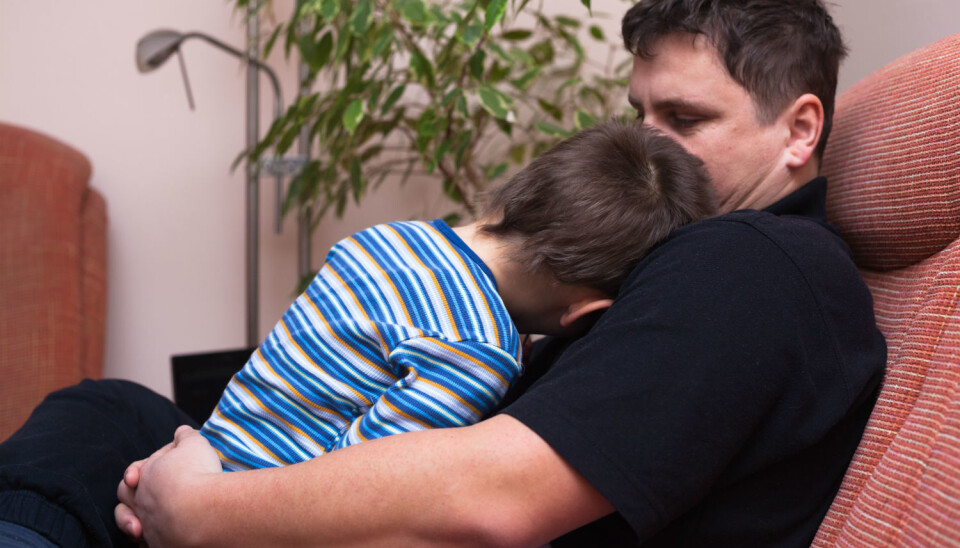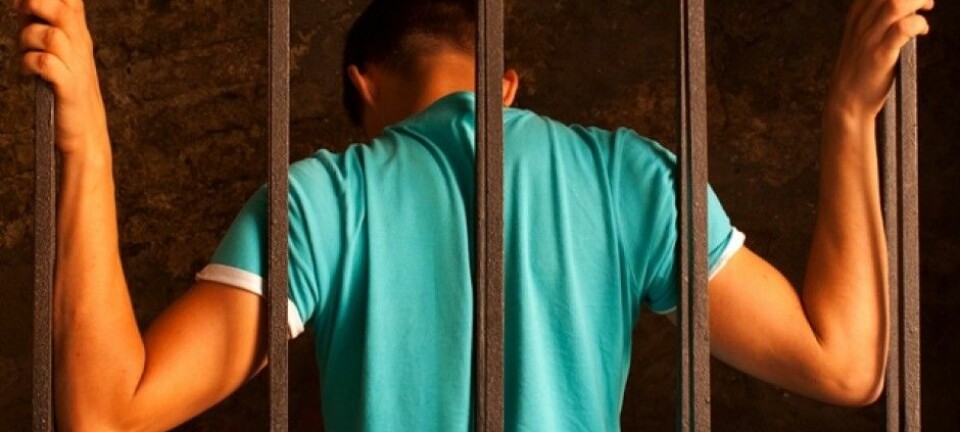
Parenting programmes benefit daddies in prison
Training programmes focusing on fatherhood may make fathers in prison more law-abiding, according to Gunnar Vold Hansen.

This article was originally published on Kilden - Information and news about gender research in Norway. Read the original article.
“I’ve come to realise how much you miss out, the kids should really come first. I don’t want them to go through this again.”
This quote is taken from an interview conducted by researcher Gunnar Vold Hansen with a father who participated in a daddy-training program for fathers in prison.
“The feedback from the inmates proved that they experienced a strengthening of the role of fatherhood and that they gained new perspectives from the course,” he says.
The background for the course is twofold. Research has shown that the chances of living a law-abiding life after serving a sentence are bigger if the inmate maintains contact with their family during their time in prison. It is also a known fact that children of fathers in prison are particularly exposed in a number of areas.
“Some are bullied and some develop behaviour problems. The fact that dad is in prison may have major financial consequences for the family, which also affect the children,” says Hansen.
“Many children of fathers in prison are hurting, but this is rarely addressed because the problem is so tabooed that people don’t dare to talk about it.”
The course aimed to strengthen fathers in prison in their role as parent, and contribute to maintaining and strengthening the contact between fathers and their children while they are in prison.
Visits in prison
“Is it only a positive thing for the children to have contact with their father while he is in prison?”
“No, it could also be negative. I’m aware of children who have found it painful and stressful to visit their father in prison because it hasn’t been sufficiently facilitated for such visits,” says Hansen.
“There are often strict regulations for visits. The children may for instance not be allowed to bring a new toy that they have been looking forward to showing their dad.”
Hansen nevertheless thinks it is important that the children are allowed to visit, but these visits should be sufficiently facilitated.
“The facilities for visitations in prison vary from place to place, but most Norwegian prisons have a job to do in terms of accommodating for better communication between inmates and their children. For instance by using Skype,” he says.
Some places the visiting room is very small. It easily gets cramped when the whole family is visiting, and children need more space than what is offered.”
Hansen believes that many children are frightened because they don’t know what Norwegian prisons look like.
“Some of the children have got an idea about what a prison looks like through American films, which strengthens their fear when their own dad goes to prison,” he says.
“Some children are also relieved when dad goes to prison, then they know where they’ve got him. This particularly applies to children living with drug abuse and violence in the home.”
Network maps
There was much variation among the participants in the program, both in terms of their own age, the children’s age, and to what extent they kept in touch with them.
“Some kept in touch with their children regularly whereas others hadn’t seen them in a long time,” says Hansen.
The programme consists of a number of different elements. For instance, the participants get an introduction to network maps, communication, child development, role theory, children’s health and rights, and public services.
“With this knowledge they gradually learn more about their role as father.”
Hansen emphasises network maps as one of the things that the participants have been particularly satisfied with in their feedback. The participants are assigned to place themselves on a map together with the rest of their social network. Then they’re asked to talk about their relations during childhood and youth and how these have affected them.
“Many of them alter their view on their own network as a result of this assignment. They become aware of who they’re surrounded by and realise that they have more resources than they initially thought they had. Some are motivated to resume contact with people they had lost touch with.”
Become better listeners
Another important part of the programme is communication. According to Hansen, many of the participants think that they have become better at communicating, with both their children and their children’s mothers.
“Some come back from home leave and say that they’ve received good feedback from their partner. They are told that they’ve changed and become better listeners.”
The programme’s pedagogical framework is also important according to Hansen.
“The programme leaders encourage the participants to contribute, to problematise things and come up with their own ideas of how various situations may be solved through communication,” he says.
“Arguments that someone “deserves a good beating” and the like are quickly descended on by the other participants.”
According to Hansen, the participants change their attitudes by focussing on a different side of themselves than their criminal past while in prison.
“Communicating with children gives a different perspective on life,” he says.
Undocumented
The study also showed that many of the participants were disillusioned six months after the course.
“They were frustrated because they weren’t followed up. Many experienced that they gained new ideas and perspectives from the course, but it felt like a waste when this wasn’t followed up afterwards.”
Hansen is not able to say with certainty whether the programme has had any real effect since they haven’t followed the participants up after they got out of prison.
“It is difficult to measure the effect of courses like this, as there are so many different factors at play concerning how the inmates handle their situation and their family life outside the prison walls,” he says.
“The totality of the programme is decisive, and the inmates’ network, the prison facilities, and the relationship to their families all play important parts.”
Hansen nevertheless concludes that the programme has a number of positive effects, but it doesn’t contribute to a solution to the problems that the family encounters while dad is serving time in prison.
“If we want to do something for the inmates’ children we have to do a lot more than just offering dad a course that lasts three to eight weeks,” Hansen emphasises.
Must benefit the child
According to Ane-Marthe Solheim Skar, postdoctoral researcher at Department of Psychology at the University of Oslo, there is broad consensus that it is important for male inmates to maintain close ties with their family during their time in prison.
“A good relationship with the family has a positive effect both on the inmate’s mental health and in terms of their possibilities for reintegration into the family after release.”
According to her, the prison culture is often characterised by “hard values” that are not easily compatible with the role of parenthood.
“Research indicates that parent guidance in prison emphasises soft values by supporting the role of fatherhood. Topics often under discussion in the parent guidance are therefore children’s development and needs, how to show love and affection, communication, setting limits, blame and shame related to imprisonment, and how to best follow up a child from prison,” says Skar.
“When it comes to the child, research indicates that in general it may be good for children to know both why their parent is in prison and how he or she is doing. During parent guidance in prison the following topics are often discussed: how should inmates talk to the child about crime and punishment, and how should they best facilitate for visits in prison when this is possible?”
According to Skar, it is important that the child and the child’s needs and wishes have first priority and that contact and meetings with the child only occur in cases where this benefits the child.
“Among other things this is dependent on the relationship between the imprisoned parent and the child before imprisonment, whether the child has been victim of abuse by the imprisoned parent, and on the parent’s and the child’s mental health.”
“Could the strengthening of the role as parent in prison have consequences for the men’s life after release?”
“Yes. Research indicates that strengthening family relations and the role of parenthood is important for subsequent social adjustments after release from prison. Strengthening the role of fatherhood may also have consequences for children’s upbringing and may contribute to the prevention of children’s mental health problems and social maladjustment.”
Translated by: Cathinka Dahl Hambro
































